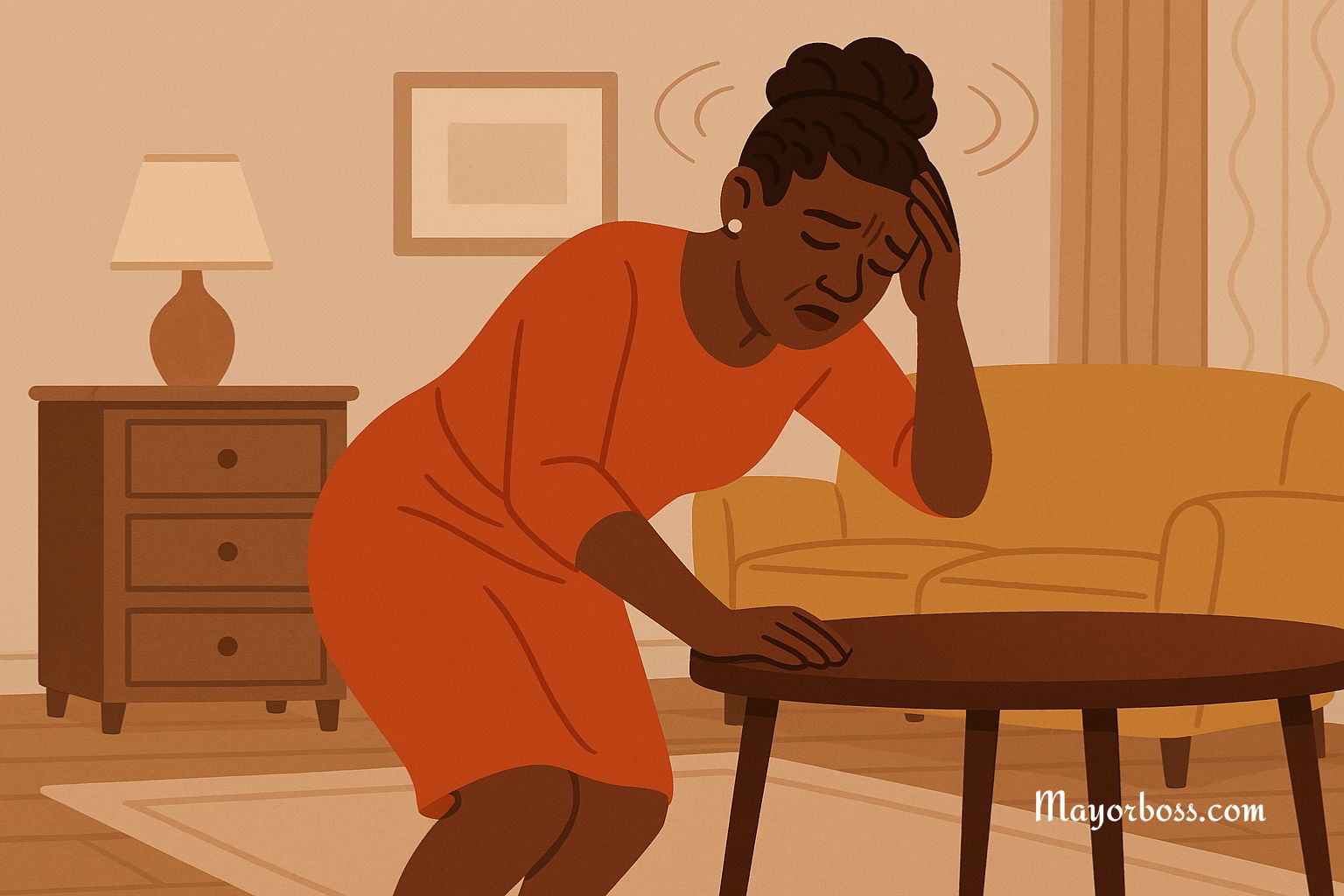Warning Signs of a Possible Stroke — Even Hours Before It Happens
A stroke can happen suddenly. But in many cases, the body gives warning signs — sometimes hours before it strikes. Knowing these early symptoms and responding quickly can be the key to preventing permanent damage or death and even saving a life.
According to the National Institutes of Health, stroke is the 5th leading cause of death in the United States and also the number one cause of severe adult disability.1
In this article, we will break down the warning signs you should never ignore, even if they seem mild or go away. Your brain depends on fast action.

What Is a Stroke?
A stroke happens when the blood supply to a section of the brain is blocked or when a blood vessel in the brain bursts. Without enough oxygen-rich blood, brain cells begin to die. The more prolonged the brain goes without blood, the more damage can occur.2
There are two main types:
- Ischemic stroke, caused by a blocked artery.
- Hemorrhagic stroke, caused by bleeding in the brain.
Both types are medical emergencies. But in many cases, the body gives advance warning.
Transient Ischemic Attack (TIA): The Warning Stroke
A transient ischemic attack, or TIA, is often called a “mini-stroke.” It happens when the blood flow to the brain is briefly interrupted. Symptoms may last just a few minutes or up to an hour. Then they go away.
But don’t ignore a TIA. It’s your body’s red flag. Many people have a full stroke hours or days after a TIA. If you experience stroke-like symptoms that disappear, it’s still a medical emergency.
Early Signs That May Happen Hours Before a Stroke
Call 911 right away if you or someone you know has any of these symptoms:3
1. Sudden Numbness or Weakness
You may feel numb or weak on one side of the face, arm, or leg. It might start slowly or hit you all at once. You might find it hard to lift your arm or smile properly. This happens because part of your brain isn’t getting enough oxygen.
2. Slurred or Strange Speech
Trouble speaking clearly is one of the most common signs. You may slur words, speak slowly, or be hard to understand. Some people can’t form sentences or don’t understand what others are saying.
3. Trouble Seeing
Vision changes can happen suddenly in one or both eyes. You might see double, lose part of your vision, or have blurry eyesight. This often comes without pain and may last for just a short time.
4. Confusion or Trouble Understanding
You might feel mentally foggy or confused. Things that were easy to understand may suddenly feel impossible. This may affect your ability to make decisions, follow directions, or even recognize familiar people.
5. Sudden Dizziness or Loss of Balance
If you feel unsteady or like the room is spinning, that could be a sign of a stroke — especially if it comes on quickly. Some people feel nauseous or even fall. This can also happen along with weakness or slurred speech.
6. Severe Headache With No Clear Cause
A very strong headache that comes on quickly and feels different from your usual headaches may be a warning sign. It can be a sign of bleeding in the brain, especially if it comes with nausea, vomiting, or loss of consciousness.
7. Face Drooping
Look in the mirror or ask someone to check. If one side of your face droops or feels numb, that’s a red flag. A crooked smile or uneven facial movement is often the first sign noticed.
The FAST Test: A Simple Way to Remember
Doctors use the FAST test to help people remember the key warning signs:
- F – Face: Ask the person to smile. Is one side drooping?
- A – Arms: Ask them to raise both arms. Does one drift downward?
- S – Speech: Ask them to say a simple sentence. Is their speech slurred or strange?
- T – Time: If you see any of these signs, call emergency services immediately.
What to Do If You Notice Symptoms
Do not wait to see if symptoms go away. Call emergency services right away. The sooner treatment begins, the better the outcome. Even if symptoms stop, you still need medical care to prevent a future stroke.
Don’t try to drive yourself or someone else to the hospital. An ambulance crew can begin life-saving treatment right away.
Final Thoughts
A stroke doesn’t always come without warning. Your body may give you signs — sometimes hours before the major event. Paying attention to those signs could prevent long-term damage or save your life.
If you or someone near you shows any of these symptoms, even if they disappear, take it seriously. Fast action saves brain cells. Fast action saves lives.
